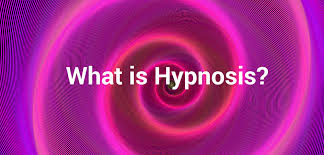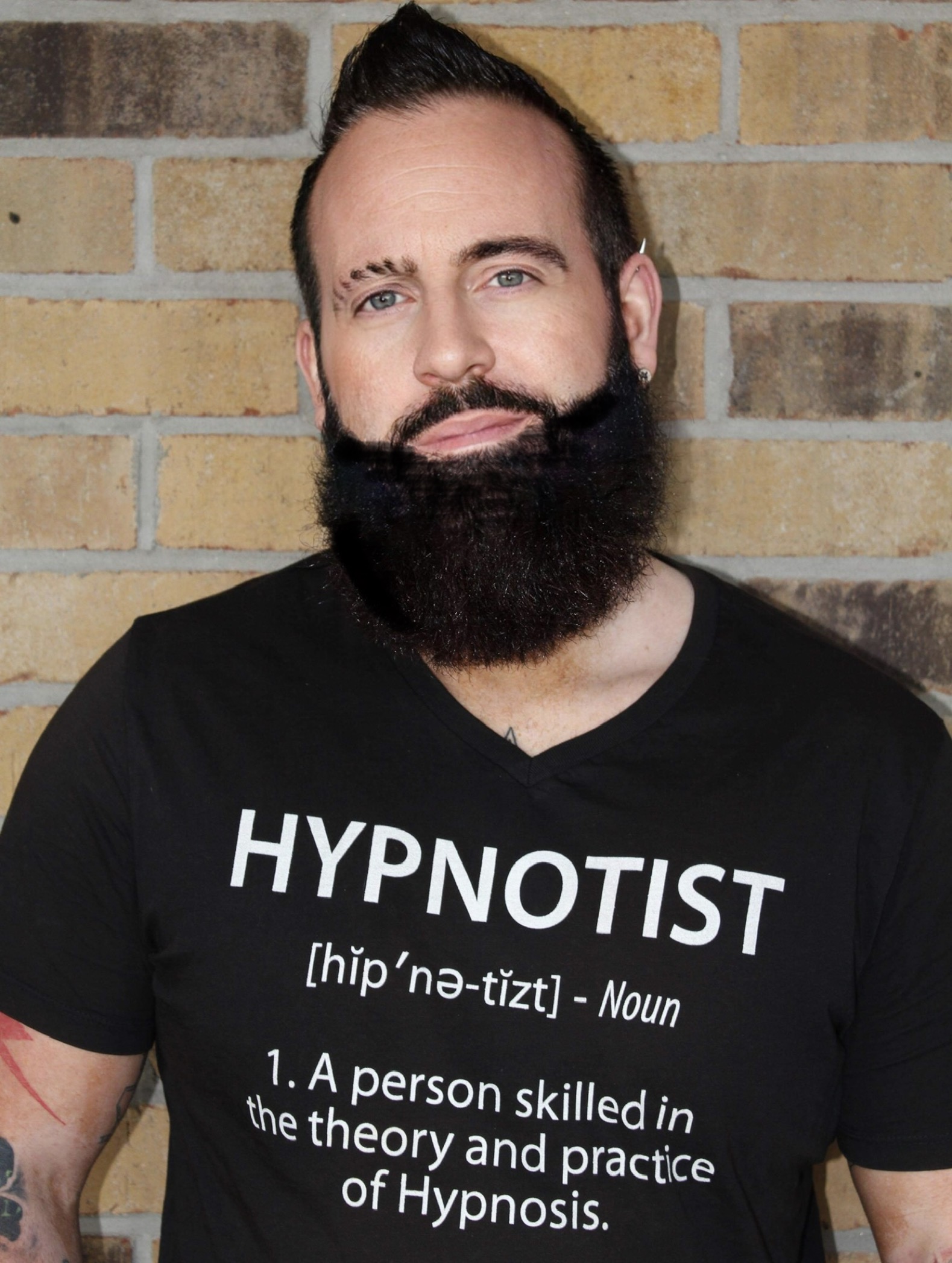
So what is hypnosis? There's a lot of definitions of hypnosis out there, okay? And I always say to my clients that I used to spend the first 45 minutes at the very first session with a new client explaining what hypnosis was and explaining what hypnosis wasn't. And quite frankly after about 45 minutes, their eyes started to glaze over like a glazed donut, and I don't know if that's because they were hypnotized or if that was because they were just bored. I still got results but I wasn't quite sure. So now I like to just kind of explain what hypnosis is to my clients in one sentence and then I go into practical applications. Basically, we just simply go into hypnotic phenomenon from there. And how I explain what hypnosis is is something that I got from Jason Linette, actually, and it's very, very simple.
What is hypnosis? Well, hypnosis simple, one sentence - automatic response, in spite of conscious awareness. Automatic response in spite of conscious awareness. Automatic response in spite of conscious awareness. Well, what does that mean? Well, it means something quite simple, that something is happening automatically. Something is happening automatically to you, to the person, to the person that's being hypnotized. Now they're aware that something is happening, i.e. if I'm doing magnetic fingers. If you've ever seen me do that, or another hypnotist, where somebody will have their hands out in front of them, they'll separate their fingers about a centimeter or an inch apart. And the hypnotist will give the client or the person who wants to participates in hypnosis and in a suggestion that their fingers will come together like two powerful magnets and the fingers come together.
Now the person who's been hypnotized, if you will, they're aware of what's going on because their eyes are opening, they are looking at the gap between their fingers. Yet something seemingly is happening automatically. Yes, on one hand, they're totally aware because their eyes are open. They're not in a weird out of body experience or weird out of body state, if you will. They're aware of something going on. Yet something is seemingly happening involuntarily to their body, to their mind. So that's the best description and most unpretentious description I ever found of hypnosis that in my model of the world makes sense.
And in most people, it's just a sense of involuntariness that yes, I'm aware yet this, my arm is raising all by itself. Yes, I'm aware that this guy is talking to me, yet my problem that was just an eight is now a one. Yes, I am aware that this hypnotist said feel this and suddenly now I'm falling backwards or to the side. Yes, I'm aware that something's going on, yet I'm seemingly not in control. Now control is a whole nother podcast topic probably we're gonna have to cover at some point in the future and the illusion of control. But hypnosis, automatic response in spite of a conscious awareness, automatic things. And if you go back to the old days and old definitions of hypnosis, one that was bounded around for many, many years, still is now, was...I believe it was credited to Dave Ellman who said that hypnosis is the bypassing of the critical factor.
Which means that you've got this logical part of your mind in this metaphor that's responsible for facts, it's responsible for figures, it's responsible for logic. But I tell my clients if you could logic your way out of this problem, you wouldn't have called me, would you? Yeah, all of our emotions, all of our problems, all of us involuntariness, all the control of our body, the endocrine system if you will, blood flow and the like, is located in the unconscious mind. Some people think or like to call that the subconscious mind, I use unconscious. It's all the same thing in my model of hypnosis and in my model of the world with people.
So basically, we're bypassing that critical fact that well, yeah, on one hand you're trying to take this all in because you're like, "Well, if I remember everything that the hypnotist is saying to make it...to make logical sense inside my head, so I can fit it in the box, I can fit it in a box inside my head that's marked hypnosis," because everything that we come in contact with in this world, every concept that is outside of us, we've got a concept of what is inside of us. So often times when people have a problem grasping the concept of hypnosis or in any form of communication, they listen but they're not listening to listen, not actually listening to hear. They're actually listening to one or two things. They listen to either say, "Oh, what that person says makes complete logical sense with my model of the world. I believe them," or to accept something, or they listen to reject an idea. "Oh that? What that person's saying doesn't make logical sense to me. So I am just going to reject it because it's different from what I already believe."
And as I tell my clients when they come into my office, come in and listen to me like you can listen to good music. Stole that one from Jurgen Rasmussen. Listen to me like you listen to good music. Now when you listen to good music, when you listen to your favorite good music, you're not listening to make that music right. You're not listening to make that music wrong. You're not there to analyze the music. "Well, that chord was a bit wrong. That pitch was a bit high. That note was a bit short." No, you listen to it and you kind of just let it flow on you like a wave. You listen to good music, you just let it flow on you. You're not looking to analyze it. you're not looking to make it wrong, to make it right. You just let it bath on you.
And that's how I ask my clients to listen to me when they first come in through the door, to listen to me when it comes to hypnosis. Don't listen to it to put it in a box or not put it in a box, just listen to it and absorb it like it's a rhythm. And that helps many many clients interact with this thing called hypnosis. Also, how would I define hypnosis? Well, it's a sense of hypnosis, for me, is a sense of being rather than doing. Now when you're aware that you're just doing something, often times that brings in your conscious mind. You're very aware that you're doing it and you might be doing it a bit consciously.
Whereas for me, hypnosis is being. An example of this would be I'll take an athlete for example, like Tiger Woods. I'm sure you're all aware of Tiger Woods, potentially the greatest golfer of all time. I don't play golf, I don't watch golf. However, this is a good story. Now Tiger Woods, I think from the young age of about seven, seven or eight, he started to play golf. His dad pushed him into it, if you will. And Tiger Woods, his dad actually, on a side note, hired a caddy for Tiger Woods as he started to progress and get better and better. And his caddie was actually a trained hypnotist. And his caddie stayed with him for many, many years all through the time that Tiger Woods became a sensation.
And funny as it may seem, coincidentally as it may seem, when Tiger Woods got rid...fired his caddy of about 20 or 30 years, I think, right about that time--it's in his autobiography, so you can check this--that's what he started to have all the weird problems with his wife and the sex problems and drug...being stopped by the police and those weird crazy mug shots that you saw, right about the same time. Which is an interesting side story. But take this, Tiger Woods spent many many years consciously practicing the skill of golf...still does. Consciously practice and over and over again drilling shots over and over again in his mind in a physical world, consciously doing it, until the point when it was the PGA golf tournament or insert whatever the big golfing tournament is out there.
Stayed tuned for part 2 of this article coming soon!





1 Response